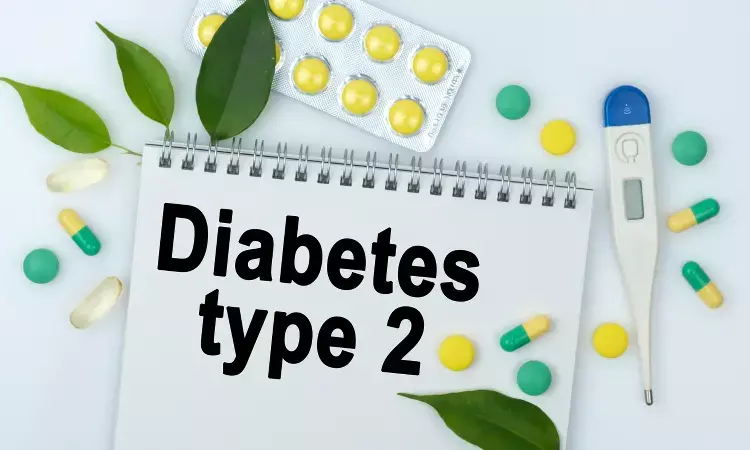- Home
- Medical news & Guidelines
- Anesthesiology
- Cardiology and CTVS
- Critical Care
- Dentistry
- Dermatology
- Diabetes and Endocrinology
- ENT
- Gastroenterology
- Medicine
- Nephrology
- Neurology
- Obstretics-Gynaecology
- Oncology
- Ophthalmology
- Orthopaedics
- Pediatrics-Neonatology
- Psychiatry
- Pulmonology
- Radiology
- Surgery
- Urology
- Laboratory Medicine
- Diet
- Nursing
- Paramedical
- Physiotherapy
- Health news
- Fact Check
- Bone Health Fact Check
- Brain Health Fact Check
- Cancer Related Fact Check
- Child Care Fact Check
- Dental and oral health fact check
- Diabetes and metabolic health fact check
- Diet and Nutrition Fact Check
- Eye and ENT Care Fact Check
- Fitness fact check
- Gut health fact check
- Heart health fact check
- Kidney health fact check
- Medical education fact check
- Men's health fact check
- Respiratory fact check
- Skin and hair care fact check
- Vaccine and Immunization fact check
- Women's health fact check
- AYUSH
- State News
- Andaman and Nicobar Islands
- Andhra Pradesh
- Arunachal Pradesh
- Assam
- Bihar
- Chandigarh
- Chattisgarh
- Dadra and Nagar Haveli
- Daman and Diu
- Delhi
- Goa
- Gujarat
- Haryana
- Himachal Pradesh
- Jammu & Kashmir
- Jharkhand
- Karnataka
- Kerala
- Ladakh
- Lakshadweep
- Madhya Pradesh
- Maharashtra
- Manipur
- Meghalaya
- Mizoram
- Nagaland
- Odisha
- Puducherry
- Punjab
- Rajasthan
- Sikkim
- Tamil Nadu
- Telangana
- Tripura
- Uttar Pradesh
- Uttrakhand
- West Bengal
- Medical Education
- Industry
SGLT-2i demonstrate lower risk for HF compared to metformin in type 2 diabetes patients

A population-based cohort study found that patients with type 2 diabetes receiving first-line sodium-glucose cotransporter-2 inhibitors (SGLT-2i) have a similar risk of stroke, myocardial infarction, and all-cause mortality but a lower risk of heart failure compared to patients receiving metformin. The authors also report that the risk for adverse events was similar except for an increased risk for genital infections among patients taking SGLT-2i. The findings are published in Annals of Internal Medicine.
SGLT-2i has demonstrated benefit in reducing risk of hospitalization in patients with cardiovascular disease (CVD). It has previously been recommended as a second-line treatment, but has more recently been recommended as a first-line treatment for patients with type 2 diabetes and CVD. Alternatively, metformin indicated reduced risk for myocardial infarction and all-cause mortality in a subgroup of patients in the U.K Prospective Diabetes Study.
Previous nonrandomized studies have mostly focused on the use of SGLT-2i as a second-line treatment, or had the potential to include non-first-line users.
Researchers from Brigham and Women's Hospital and Harvard Medical School studied 8,613 patients initiating SGLT-2i matched to 17,226 patients initiating metformin as first-line type 2 diabetes treatment to assess cardiovascular outcomes between the two groups.
The authors found that patients initiating SGLT-2i showed a lower risk for hospitalization for heart failure, a numerically lower risk for myocardial infarction, and similar risk for stroke, all-cause mortality, and myocardial infarction/stroke/hospitalization for heart failure/all-cause mortality compared with metformin.
Patients initiating SGLT-2i had a higher risk for genital infections but showed similar risk for adverse events as patients receiving metformin. The authors note that while their findings may support the use of SGLT-2i as first-line type 2 diabetes treatment of cardiovascular outcomes, further research is warranted to establish more robust evidence.
Dr Kamal Kant Kohli-MBBS, DTCD- a chest specialist with more than 30 years of practice and a flair for writing clinical articles, Dr Kamal Kant Kohli joined Medical Dialogues as a Chief Editor of Medical News. Besides writing articles, as an editor, he proofreads and verifies all the medical content published on Medical Dialogues including those coming from journals, studies,medical conferences,guidelines etc. Email: drkohli@medicaldialogues.in. Contact no. 011-43720751


